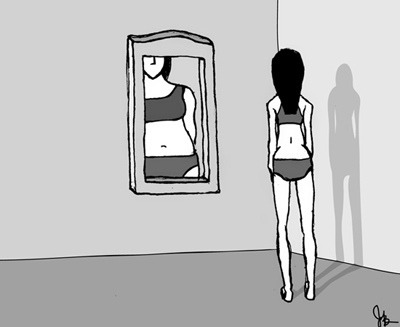Less Commonly Known Eating Disorders
date: 2012-11-28  time: 19:18:31
time: 19:18:31
 time: 19:18:31
time: 19:18:31 Orthorexia: defined as an obsession with "healthy or righteous eating".
- An individual dealing with Orthorexia fixates on defining the "right" foods, foods that can be safely eaten.
- They will spend just as much time and energy thinking about food as someone with Bulimia or Anorexia. They may not think about calories, but they think about the overall "health benefits" and how the food was processed, prepared, etc. Individuals with Orthorexia tend not to eat out as much because they do not trust the preparation of foods other than what they have prepared.
- The obsession for healthy foods could come from a number of sources such as family habits, society trends, economic problems, recent illness, or even just hearing something negative about a food type or group, which then leads them to ultimately eliminate the food or foods from their diet.
- Something to keep in mind: The severe restrictive nature of Orthorexia has the potential to morph into Anorexia.

Bigorexia: a disorder in which a person constantly obsesses and/or worries about being too small, underdeveloped, and/or underweight.
- Typically those that have Bigorexia are not frail or underdeveloped at all. They actually have large muscle mass and will obsess about having the perfect physique. They will believe their muscles are inadequate. Bigorexia has also been known as muscle dysmorphia, Reverse Anorexia, or Adonis Complex.
- This disorder is a form of Body Dysmorphic Disorder and is related to Obsessive-Compulsive Disorder. Those with Bigorexia constantly obsess over their imperfections, further distorting their perception of themselves. This will significantly impair the person’s mood often causing depression or feelings of disgust.
- Both men and women can be affected by this disorder, although men are most susceptible.
Night Eating Syndrome: primarily characterizes an ongoing, persistent pattern of late-night binge eating. The individual may not be aware at the time of what they are doing when they are eating.
- Unlike binge eating, which is done in relatively short episodes, NES involves continual eating throughout the evening.
There are of course more than just these… but they are a few of the less commonly known eating disorders. Anorexia and Bulimia are not the only eating disorders out there.
For more information on these and other eating disorders, go to Alliance for Eating Disorders and search the LEFT column for different types.







